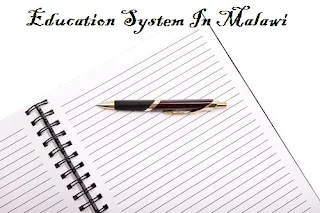Education System In Malawi
The Ministry of Education, Science and Technology (previously the Ministry of Education, Sports and Culture) is the agency that has administrative, financial and academic control of primary, secondary, and tertiary education, as well as the training of primary school teachers.Pre-school Education
Pre-school education provides an important foundation for learning and development. The government of Malawi recognises the importance of pre-school education, and encourages communities to set up their own pre-schools, but does not support pre-schools financially.Pre-school education is provided by daycare centres and pre-school playgroups (children aged 3-5½). Attendance is not compulsory; pre-school playgroups are mainly available in the urban area. The Ministry of Education considers early childhood care and education (age group 0-5 years) as part of basic education.
Primary Education
Primary school education in Malawi is provided by the government, and is free to all students in Malawi. Free primary school education was introduced to Malawi in 1994.Primary school education in Malawi is made up of eight years (referred to as Standard 1 to Standard 8.) Although the official primary school age group in Malawi is categorised as 6-13, it is very common for students of varying ages to attend primary school, as many students have to repeat some primary years.
There are three school terms a year for primary schools in Malawi, running generally from September to December, January to April, and April to July. Primary school students in Malawi learn a variety of subjects, and take examinations in English, ChiChewa, maths, science, and social studies. Students must gain a Primary School Leaving Certificate based on their Standard 8 final exam results in order to progress to secondary school.
Primary education is organized into three cycles: Infant (Standards 1-2), Junior (Standards 3-5) and Senior (Standards 6-8). The primary education programme culminates in the Primary School Leaving Certificate Examination (PSLCE). This examination is also used as a selection tool to allocate the limited number of places in secondary schools.
Secondary Education
Secondary school education in Malawi is provided by the government as well as privately, but is not free to students who must pay school fees. Secondary school fees vary greatly, but can range from as low as £20 per year at local community day secondary schools, to £700 per year or even higher for private secondary boarding schools.Secondary schools in Malawi are run in four years (referred to as Form 1 to Form 4), and split into three terms which run generally from September to December, January to April, and April to July. Students have to pass their Junior Certificate of Education (JCE) in Form 2, they cannot progress to Form 3 without passing the JCE, Students must also take Malawi Secondary Certificate of Education (MSCE) in Form 4 and cannot graduate from secondary school without passing the MSCE.
Students study English, maths, agriculture, physics, biology, geography, history, bible knowledge, social studies, and ChiChewa. Both for their JCE and MSCE, students can choose to be tested on any combination of these subjects, and can drop their lower scores and keep their best six. However, they are required to pass English and maths in order to proceed.
Technical and vocational education and training is provided in technical colleges, community-based training centres, private commercial training providers, and the apprenticeship training system, combining on-the-job training with instruction in the colleges. The colleges offer two parallel programmes, a two-year craft programme leading to a Grade 2 Trade Test Certificate and a four-year TEVETA apprenticeship programme leading to a Grade 1 Trade Test and a Malawi Crafts Certificate.
University Education
Post-secondary education courses vary in length, depending on the type of training programme. Access to higher education is based on passing the Malawi Secondary Certificate of Education (MSCE). A student must earn at least five credits, including English. This exam may be taken after completing eight years of primary and four years of secondary education. Students wishing to be accepted by the university must achieve excellent scores in these exams.The first, or Bachelor’s, degree is normally earned after four years of concentrated study in residence. It takes five years to complete courses in law, education, agriculture, and commerce, and six years to finish the full engineering programme. Honours degrees are awarded in some subjects. A professional qualification is awarded as a diploma after three years of study.
A second stage, or Master’s degree, requires two years of full time study to complete. A third stage, or Doctorate degree, is awarded after finishing three to five years of study beyond the Master’s degree, a successful defence of a thesis or dissertation, and at least six months in residence at the university.

